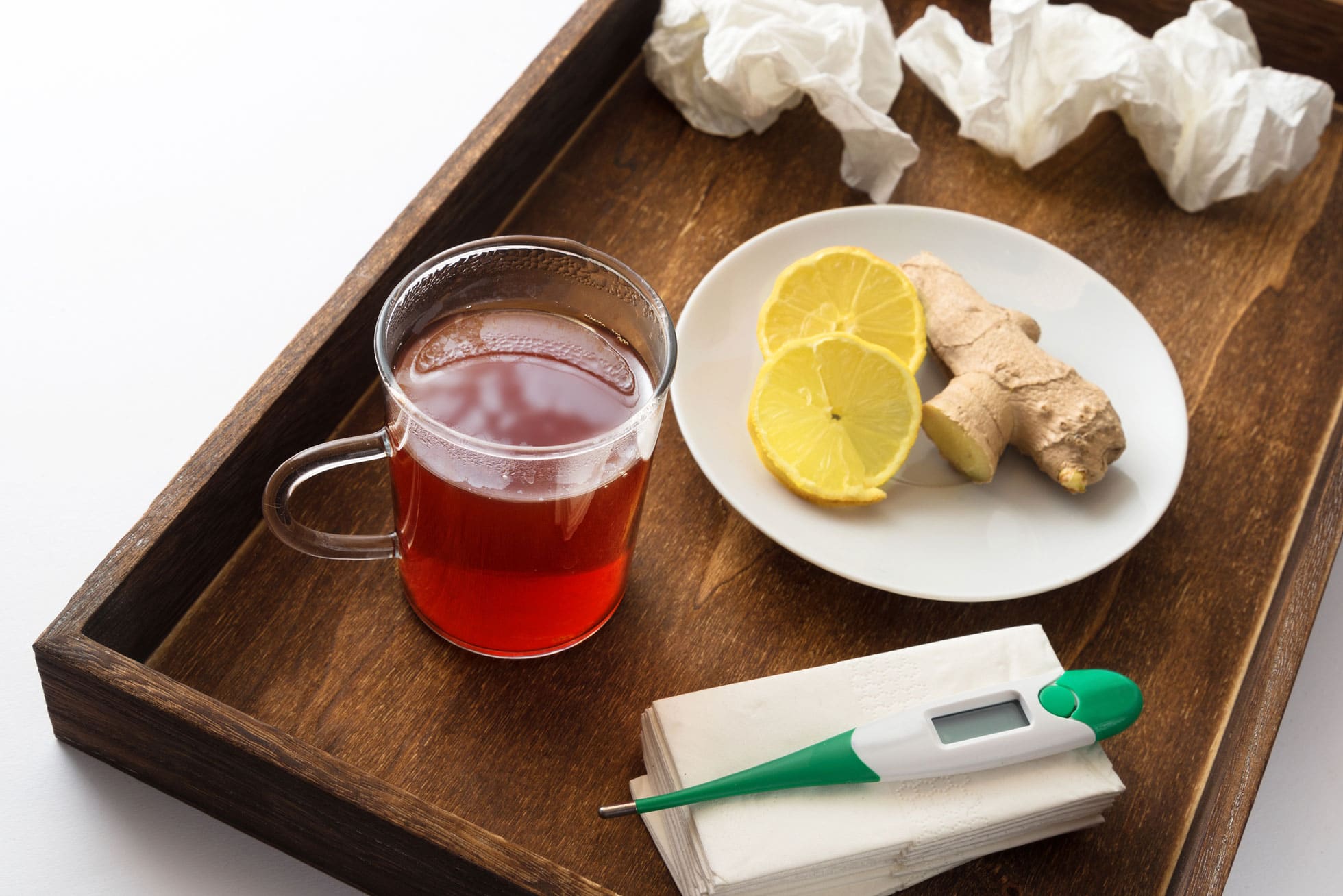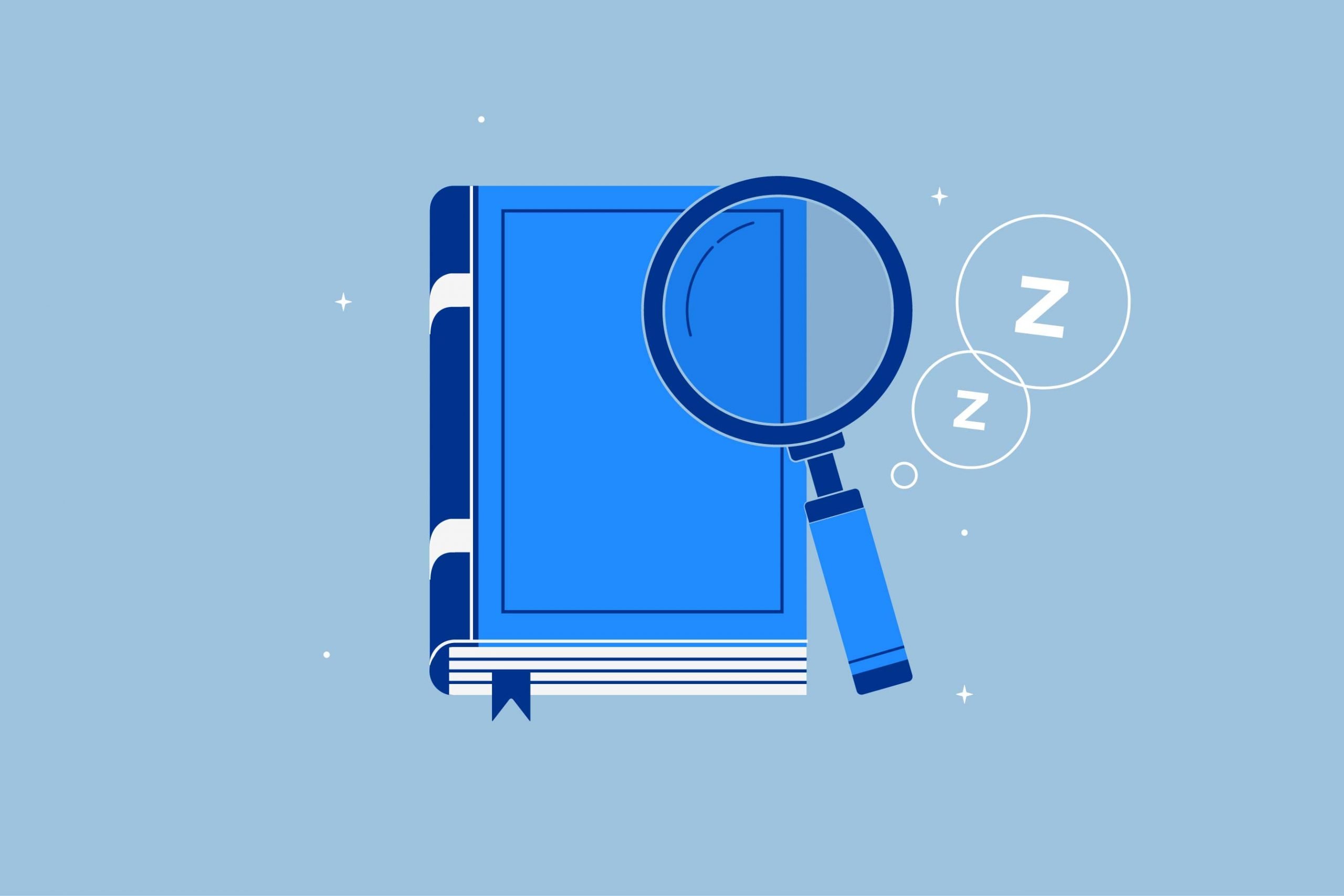Key Takeaways
- Implement Comfortable Sleep Measures: Block out any distracting light, maintain a quiet atmosphere, and control the room temperature. Use layers of blankets to manage temperature fluctuations and keep your head elevated while sleeping to alleviate nasal congestion. Additionally, keep a bedside kit stocked with essentials like water, honey, tissues, and reading materials to minimize disruptions during the night.
- Explore Natural Remedies: Consuming warm chicken soup can aid in hydration and provide anti-inflammatory effects, easing common cold symptoms. Saline rinses can effectively relieve nasal congestion, while salt water gargles and decaffeinated black tea with honey can soothe a sore throat and suppress coughing. Moreover, steamy showers with eucalyptus and essential oils can help ease congestion and promote relaxation.
- Be Mindful of Medications: Be cautious with over-the-counter medications and their potential effects on sleep. Some medications containing pseudoephedrine can induce restlessness, while others with diphenhydramine may have varying effects on sleep. Opt for acetaminophen to alleviate pain, headaches, and fever.
By now, you’ve probably heard (or worse, have had direct experience with) that this flu season is shaping up to be especially bad. Verified Source Centers for Disease Control and Prevention (CDC) The United States’ health protection agency that defends against dangers to health and safety. View source
Nearly every state is reporting widespread flu activity, and this year’s vaccine is proving ineffective against the most widely circulating strains of the virus.
What’s more, there’s no way to instantly cure common winter ailments like the flu or common cold. But by getting plenty of rest (clocking 7 to 9 hours of sleep each night) and drinking lots of fluids, you can help your immune system fight a nasty virus faster—and start feeling like your old self sooner.
Trouble is, sleeping soundly with the flu or a cold doesn’t usually come easy. A stuffy nose and congestion can make it harder to breathe. A scratchy throat can mean frequently waking up, and chest congestion can give you uncontrollable coughing fits.
Achiness and pains also make it hard to get comfortable, even in a bed that’s fit for a king. And if you’re dealing with a fever and chills, you’re likely spending half the night throwing your blankets off in a sweat, only to yank them back on 10 minutes later as your teeth begin to chatter.
But even when the cold and flu cards are stacked against you, there are ways to get more of the rest that your body so desperately needs. Here are eight simple tips to ease discomfort and help you sleep better when you’re sick.
Eat Chicken Soup for Dinner
Turns out, mom was onto something when she’d serve you a piping hot bowl of chicken soup on sick days. The steam wafting up from your bowl is perfect for clearing your nasal passages, while the broth helps you stay hydrated. And soup is simple enough and easy on the stomach that you won’t have to clean up vomit from the mattress, the way you might with even mildly richer food.
But that’s not all. Research suggests that chicken soup actually contains anti-inflammatory effects that may aid in easing cold symptoms and help you bounce back faster. Though experts can’t say for sure how the whole thing works, they do know that canned soups seem to work as well as homemade—so you can reap the benefits even if mom isn’t around to make you a fresh batch.
Just be careful not to eat too much before bed.
Try a Saline Rinse for Congestion
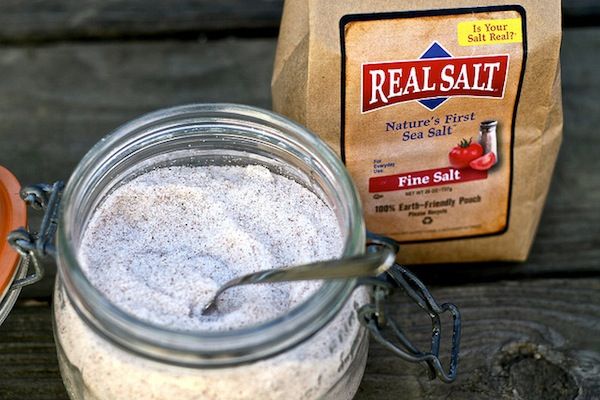
To soothe a stuffy nose, skip the nasal spray (it can be drying as well as habit-forming) in favor of a simple saline rinse, which research suggests Verified Source National Library of Medicine (NIH) World’s largest medical library, making biomedical data and information more accessible. View source may be more effective at relieving congestion.
You can snort warm salt water (use natural sea salt, since table salt often contains irritating anti-caking agents) right from your hands, but a neti pot is easier and more pleasant to use: The teapot-shaped device is available at most drugstores, and makes it simple to pour a saline solution in one nostril and out the other. Dealing with congestion is a key part of avoiding snoring when you’re sick.
Calm Your Cough
Salt water won’t just ease stuffiness—it can also offer temporary relief for a sore throat. Mayo Clinic experts recommend Verified Source Mayo Clinic Ranked #1 hospital by U.S. News & World Report and one of the most trusted medical institutions in the world. The staff is committed to integrated patient care, education, and research. View source gargling eight ounces of warm water mixed with 1/2 teaspoon salt.
Can’t stand the saltiness? Try decaffeinated black tea with a big spoonful of honey. Black tea contains theobromine, a compound whose cough-suppressing qualities outweigh codeine. The sweet stuff, on the other hand, helps to coat your throat and minimize that scratchy feeling. Like theobromine, research suggests that honey actually does a better job at easing nighttime cough Verified Source Mayo Clinic Ranked #1 hospital by U.S. News & World Report and one of the most trusted medical institutions in the world. The staff is committed to integrated patient care, education, and research. View source than over-the-counter medications.
Take a Steamy Shower

A hot shower is more than just relaxing. The steam from the hot water is a natural, effective way to ease congestion, helping you breathe easier. (If you feel too weak to stand, just turn the shower on, shut the bathroom door, and sit in the room. You’ll still reap the benefits.)
To boost your shower’s feel-good power, add a few drops of eucalyptus essential oil, which boasts antiviral properties and can also help break up mucus and ease joint pain.
Lavender essential oil is another great add-in, since the soothing scent is thought to promote relaxation. An added bonus: the drop in body temperature after you leave a warm bath or shower helps encourage sleep.
You might also find these scents relaxing in the bedroom. Our guide to essential oils for sleep suggests a few that many find relaxing.
Consider Skipping Stimulating Meds
The active ingredients found in certain medications can make it harder to fall asleep quickly. Cold pills and some cough medicines contain the decongestant pseudoephedrine, which can leave you feeling hyper. And though diphenhydramine, found in many cold and allergy meds, makes some people sleepy, it can actually have the opposite effect in others.
If you know that the ingredients don’t pose a problem for you, it’s OK to take them (always check with your doctor first, though). But if you’re not sure, it might be better to steer clear to avoid the potential for tossing and turning.
As for cold and flu meds specifically designed for sleep? Many contain alcohol, which tends to make your sleep more fragmented than restful. If you feel you need medication, experts recommend sticking to acetaminophen, which can help ease pain, headaches, and fever.
Create a Comfortable Sleep Environment
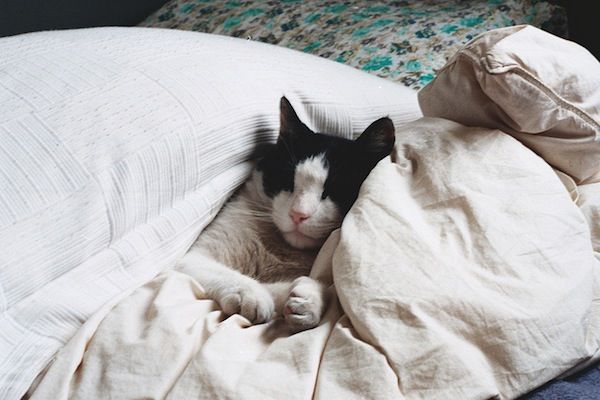
Sick or not, a great night’s rest depends on a comfortable environment, a bedroom set up for better sleep. To make your bedroom as sleep-friendly as possible, start by blocking out any distracting light.
Close shades or curtains as tightly as possible. If others in your household are still awake and have lights on outside of your bedroom, place a towel at the door crack to keep hallway light from creeping in. Finally, power down any electronic devices (for alarm clocks, try turning them away from you.)
Quiet matters, too. Block distracting noises with earplugs if need be. Sleeping with a fan on can help drown out the odd noise at night, though having a fan on at night does have its own drawbacks.
Heavy drapes can not only keep out light but can muffle outside noises, too. While you may not be able to manage some of the more drastic ways to block out noise at night while you’re sick (such as re-arranging your bedroom), you can try sound-muffling tiles and such to promote better sleep.
And since you’re probably alternating between feeling too hot and too cold, sleep on a comfortable mattress with layers of blankets, which allow for more temperature control than a single heavy comforter. Finally, set your bedroom’s thermostat to around 65˚. Though it might seem chilly, research suggests that cooler air helps you sleep better.
Keep Your Head Elevated
Even if you ease your nasal congestion before hitting the sack, it’ll likely return in a few hours’ time. To make that less likely, keep your head elevated while you snooze, which can help keep your nasal passages open. If two or three stacked pillows bother your neck, a wedge-style pillow may be more comfortable.
Stock Your Nightstand
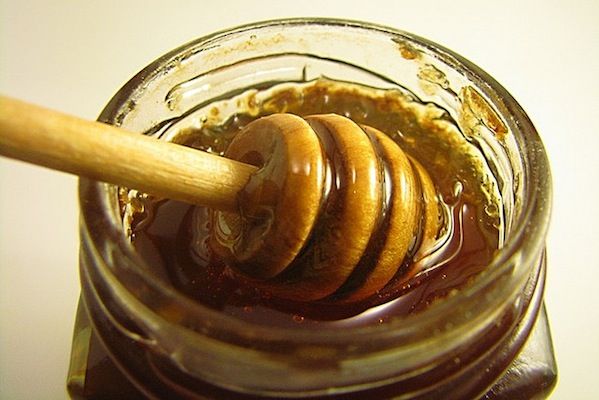
After actually managing to fall asleep, the last thing you want is to have to get out of bed in the middle of the night and start rummaging around for stuff to ease your symptoms.
Instead, keep a little feel-good kit on your nightstand. A big glass of water can ease coughing spasms, while a few drops of honey can help re-coat your throat (keep it in a small bowl with a spoon). Tissues can help with runny or stuffy noses.
Finally, have a book or magazine handy. If you wake up and are having trouble falling back asleep, a few minutes of light reading can help you start to feel drowsy again.
Conclusion
Practicing good sleep hygiene and knowing a few tricks for easing the unpleasant symptoms of colds and flus helps make sleep easier, which in turn helps you get back to normal sooner.
What helps you get better sleep when you’re sick? Any DIY remedies for getting more restful sleep when you’re under the weather?
About the author
Marygrace Taylor is an award-winning health writer for Amerisleep. Her commitment to sleep health is evident in her ability to consistently prioritize eight hours of sleep each night. Her in-depth interviews with industry experts, such as Ken Ceder on "Why Light is Essential for Great Sleep and Optimum Health," highlight her dedication to delivering valuable insights. Marygrace's work has been featured in reputable publications like Business Insider, Glamour, Refinery29, Metro UK, and Hunker, further solidifying her expertise in the field.
View all posts